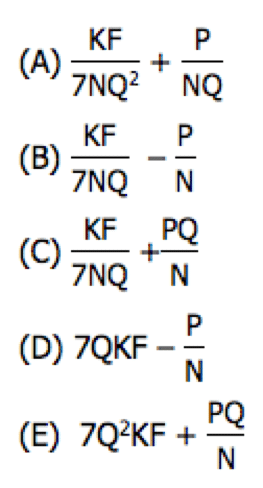
The GMAT Verbal section is designed to assess your ability to read critically, reason logically, and evaluate complex arguments—skills that are vital for success in business school and beyond. While many test-takers focus heavily on the Quantitative section, a strong Verbal score can be just as important in setting your application apart. In fact, top MBA programs look closely at each of the sections that comprise your total score, including Verbal.
Here’s what you need to know: the Verbal section of the GMAT includes 23 questions to be completed in 45 minutes. This section is fully computer-adaptive, meaning the difficulty of each question adjusts based on how well you’re doing. That makes every question count.
Whether you’re a native English speaker or not, mastering the Verbal section isn’t just about knowing English—it’s about understanding structure, logic, and nuance. And with the right approach, it’s absolutely conquerable.
GMAT Verbal Question Types
The GMAT Verbal section is made up of two core question types: Reading Comprehension (RC) and Critical Reasoning (CR). Each question type tests distinct—but complementary—skills that MBA programs value: the ability to understand complex information and the ability to think logically and critically.
Reading Comprehension (RC)
Each Reading Comprehension passage is around 200–350 words, followed by 3–4 questions. These passages cover a wide range of topics—business, social science, natural science, history—but you don’t need any outside knowledge to answer the questions.
RC questions assess your ability to:
- Identify the main idea of the passage
- Understand supporting details and how they relate to the author’s argument
- Make inferences from what’s implied but not directly stated
- Recognize the author’s tone, attitude, or purpose
- Analyze the structure and flow of the passage
Common Question Types:
- What is the main idea or primary purpose?
- What can be inferred from the passage?
- How does the author feel about the topic?
- What role does a specific paragraph or sentence play?
💡Try out some GMAT Reading Comprehension practice questions and learn about each type in depth.
Critical Reasoning (CR)
Each CR question begins with a short argument—typically 40–100 words—followed by a single question and five answer choices. These arguments often involve business, policy, or everyday logic scenarios.
CR questions measure your ability to:
- Understand the structure of an argument
- Identify the conclusion and evidence
- Uncover unstated assumptions
- Evaluate the strength or weakness of an argument
- Draw conclusions or resolve paradoxes
Common Question Types:
- Strengthen or weaken the argument
- Find the assumption
- Evaluate the argument
- Draw a conclusion or inference
- Explain a discrepancy or paradox
💡Test your analytical skills with some sample GMAT Critical Reasoning practice questions and learn about each type in depth.
Strategic Approach to GMAT Verbal
Success on the GMAT Verbal section entails reading with purpose, thinking critically, and using time wisely. Below are core strategies to help you approach each question type with confidence.
Reading Comprehension Strategies
1. Read for Structure, Not Detail
Don’t try to memorize every fact in a passage. Instead, focus on understanding the passage’s organization and the function of each paragraph. Identify the author’s purpose and the central argument.
2. Use Transition Words as Signposts
Words like however, therefore, for example, and nevertheless signal important shifts in the argument. Paying attention to these cues will help you map the passage quickly and accurately.
3. Visualize Complex Ideas
When reading technical or abstract material, mentally picture relationships or key processes. Visualization helps you retain and organize complex information.
4. Don’t Overread
Most questions don’t require you to understand the entire passage in depth. Use the question stem to guide you to relevant sections.
Critical Reasoning Strategies
1. Identify the Argument Core
Start by pinpointing the conclusion, then the premises that support it. This foundation will help you evaluate the logic more clearly.
2. Know the Question Type
Before diving into the answer choices, understand the task: are you strengthening? Weakening? Finding an assumption? Clarifying the question’s goal will make answer elimination easier.
3. Pre-phrase the Answer
Try to anticipate what a correct answer might look like. This keeps you actively engaged and helps you avoid trap choices.
4. Watch Out for Common Trap Answers
Beware of:
- Extreme language (always, never, must)
- Out-of-scope answers (irrelevant to the argument)
- Restatements (choices that repeat but don’t analyze)
💡Ready to put your Verbal skills to the test? Try our GMAT Diagnostic Quiz to see how you perform—and get study advice on where to go next.
Time Management
1. Pace Yourself
You’ll have about 2 minutes per question, but that’s an average—not a rule. RC questions often take longer, so budget your time accordingly.
2. Don’t Get Stuck
If a question feels too time-consuming, make your best guess, flag it, and move on. You can return to that question at the end of the section to revisit it if you have time.
3. Use Strategic Guessing
If you’re running out of time, use elimination to make an educated guess. Don’t leave any questions blank.
💡The GMAT—no matter which section you’re on—is largely a test about time management. Learn more about pacing here.
GMAT Verbal Scoring
Understanding how the GMAT Verbal section is scored—and how your score fits into the bigger picture—can help you set smart goals and track your progress effectively.
Verbal Score Range
The Verbal section is scored on a scale of 60 to 90 in one-point increments. Your score is based not just on how many questions you get right, but also on the difficulty level of the questions you answer correctly. This is the nature of the adaptive testing model: high performance on harder questions yields a higher score.
How Verbal Affects Your Total Score
Your Verbal score, along with your Quantitative and Data Insights scores, contributes to your total GMAT score, which ranges from 205 to 805. All three sections are weighted equally in the final calculation.
While Quant often gets more attention, don’t underestimate the Verbal section—it’s a critical differentiator, especially among applicants from quant-heavy backgrounds.
To see the impact of changes to your Verbal Score on your overall total score, play with our Interactive GMAT Score Chart.
What’s a Good Verbal Score?
A “good” score depends on your target schools and your overall profile. That said, here are a few reference points:
- Average Verbal score: 79
- The scores of the top 25% Verbal scorers: 82+
- Competitive score for top-10 programs: Typically 85+
If your Quant and/or Data Insight score is already strong, boosting your Verbal score can significantly raise your overall score and demonstrate well-rounded academic ability to admissions committees.
Common Mistakes to Avoid
Even well-prepared test-takers can fall into common traps on the GMAT Verbal section. Avoiding these pitfalls can help you save time, maintain accuracy, and maximize your score.
1. Rushing Through the Passage or Argument
Skimming too quickly can lead to missing the main idea, misinterpreting the author’s tone, or misunderstanding the logic of an argument. Take the time to grasp the structure and purpose of the text before diving into the questions.
Tip: Read actively. For Reading Comprehension, note the role each paragraph plays. For Critical Reasoning, identify the conclusion and premises before evaluating answer choices.
2. Making Assumptions Not Supported by the Text
It’s easy to bring outside knowledge or opinions into your analysis—especially on familiar topics—but GMAT questions are designed to be self-contained. The correct answer must be supported by the passage or argument alone.
Tip: Always ask, “Is this idea stated or clearly implied?” If not, eliminate it.
3. Misreading the Question Type
Mixing up a “weaken” question with a “strengthen” one—or an “inference” with a “main idea”—can derail even the most thoughtful analysis.
Tip: Slow down and identify exactly what the question is asking before reviewing the answers.
4. Overlooking Trap Answer Choices
GMAT Verbal is filled with answer choices that sound right but are subtly flawed:
- Out-of-scope answers: Don’t directly relate to the passage
- Distorted facts: Twist the meaning of the original text
- Extreme language: Use words like always, never, or completely—which are rarely correct
Tip: Unless they’re clearly justified by the passage, eliminate answers that use absolute or emotional language.
5. Failing to Review Mistakes
One of the biggest barriers to improvement is repeating the same types of mistakes without understanding why.
Tip: Don’t fear mistakes, but do aim to never make the same mistakes twice.
Studying for GMAT Verbal
Preparing for the GMAT Verbal section doesn’t just mean doing lots of questions—it means building the right skills, using smart strategies, and practicing with purpose. Here’s how to study effectively.
Build Foundational Skills
Before diving into practice questions, make sure you’ve strengthened the core abilities GMAT Verbal tests:
- Reading Speed & Comprehension: Read regularly from dense, high-level sources like The Economist, Harvard Business Review, or The New York Times’s opinion section.
- Critical Thinking: Practice identifying assumptions, conclusions, and logical flaws in everyday arguments (news articles and editorials are great for this).
- Vocabulary Recognition: You don’t need to memorize long word lists, but being comfortable with formal and academic vocabulary helps with reading fluency.
Track Your Progress
Improvement comes from feedback. Make it a habit to:
- Review every question you get wrong—don’t just move on
- Log your errors in a spreadsheet or journal
- Identify patterns (Are you always missing inference questions? Do you rush through CR?)
This helps you target your weak spots and avoid repeating mistakes.
Practice Consistently
Cramming doesn’t work for the GMAT. Instead:
- Set aside dedicated study time—better yet, stick to a study schedule
- Aim for quality over quantity—even 30 focused minutes is better than 2 distracted hours
- Mix passive review (videos, notes) with active practice (timed sets, quizzes)
💡And be sure to take full-length practice tests to sharpen your pacing skills. Try a free GMAT practice test today.
Closing Thoughts
The GMAT Verbal section isn’t just a reading test—it’s a test of how you think. It challenges you to interpret complex information, evaluate arguments, and spot subtle distinctions in tone, logic, and structure. These are the same skills you’ll rely on in business school and your professional career.
The good news? With the right strategies and consistent practice, you can master it.
Focus on building strong reading habits, understanding how each question type works, and learning from your mistakes. Whether you’re aiming to boost your overall score or balance out a quant-heavy profile, excelling in Verbal can give you a real competitive edge.
Ready to get started? A Magoosh Premium Plan offers comprehensive GMAT Verbal prep—including video lessons, practice questions, and study plans—to help you build confidence and hit your target score.
FAQs about GMAT Verbal
How many questions are on the GMAT Verbal section?
There are 23 questions on the Verbal section of the GMAT Focus Edition, and you’ll have 45 minutes to complete them.
What types of questions are in the GMAT Verbal section?
The Verbal section includes two types: Reading Comprehension and Critical Reasoning.
What are Sentence Correction questions? Do I have to worry about those?
Good news! Sentence Correction questions no longer appear on the GMAT. Thus, no need to worry about dangling modifiers, misplaced commas, and choice of diction.
Is GMAT Verbal harder than GMAT Quant?
That depends on your strengths. Many native English speakers find Verbal easier, while others may struggle with the nuance of arguments and inference-based reading. Both sections are challenging in their own way.
Check out our study advice for non-native English speakers taking the GMAT.
Do I need to memorize vocabulary for GMAT Verbal?
No. The GMAT doesn’t really test advanced vocabulary directly—unlike the GRE. Instead, the GMAT focuses on comprehension, logic, and clarity. However, you may encounter advanced words in reading passages, which can make comprehension more difficult if you’re not used to those words.
However, you don’t need to run through lots of vocabulary flashcards to do well on the GMAT. Any time like that would be better spent on reading complex material regularly so that you can get used to the kinds of passages that appear on the GMAT.





